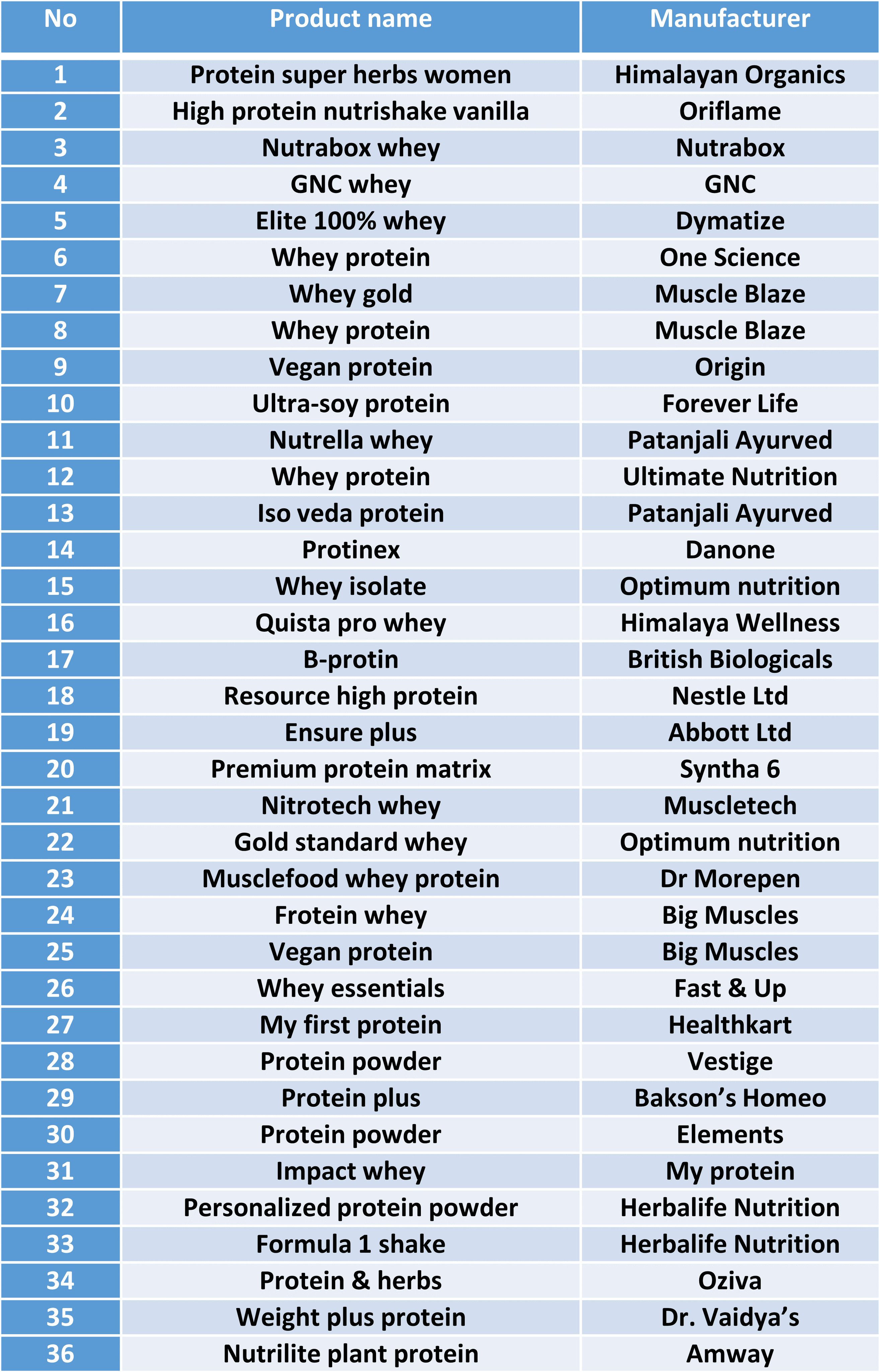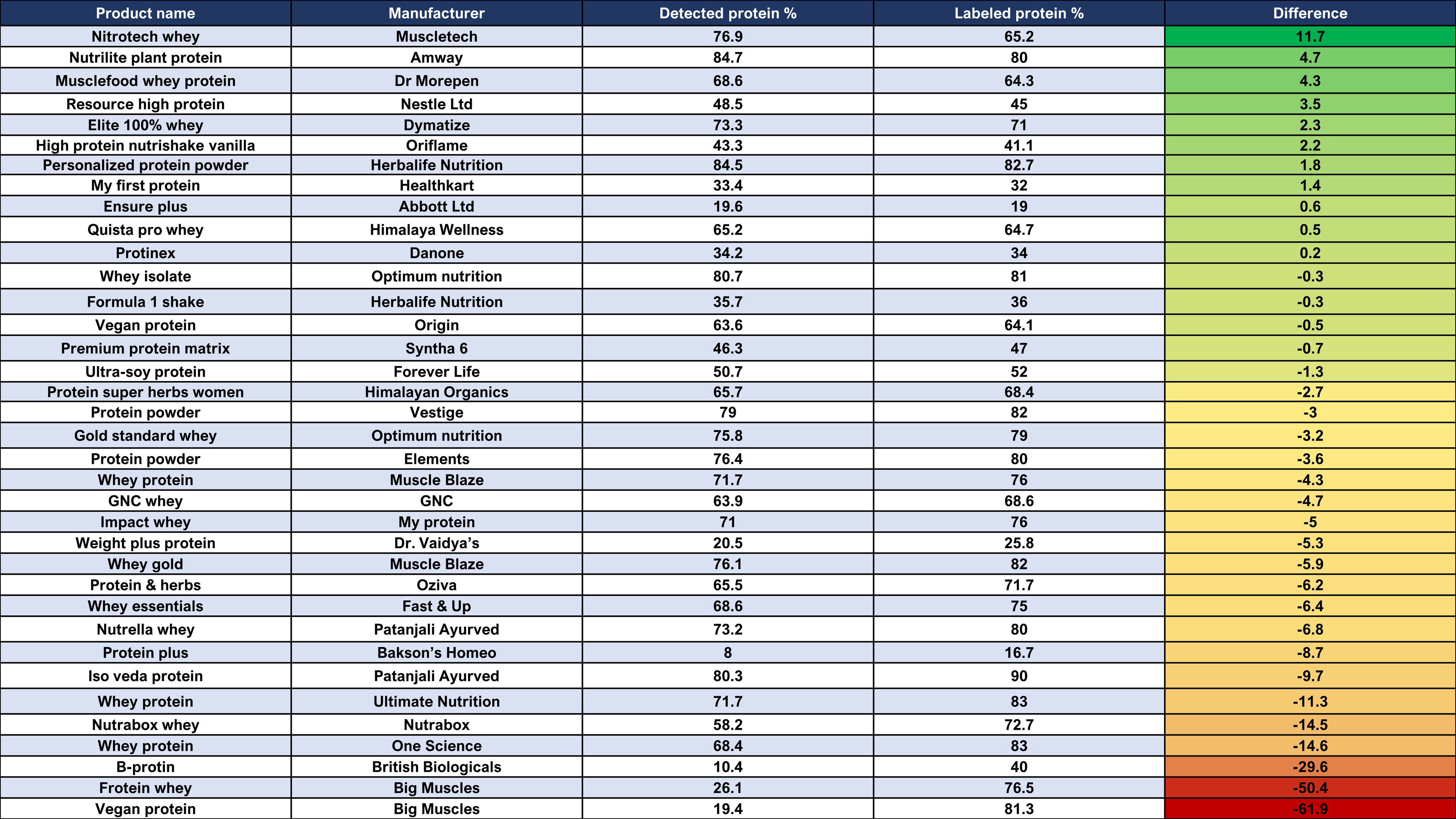
Protein supplements have become increasingly popular over the years, with many people turning to them for various reasons, including building muscle, losing weight, and improving overall health. However, the quality of these supplements has been a cause for concern, with many products being mislabelled and containing harmful substances. In India, where the market for protein supplements is growing rapidly, this has become a significant public health issue. To address this problem, a unique public-health project, the “Protein Project,” was funded by Paras Chopra to analyze common/well-known protein supplements sold in India. The project is handled by TheLiverDoc and the team at The Liver Institute and Neogen labs. In this article, we’ll explore the findings of this project and what they mean for consumers.
1/30
Our "Protein Project" report is here
What is it?
Unique public-health project funded by @paraschopra to analyze common/well-known protein supplements sold in IndiaWho did it?
Me & team at The Liver Institute with world class, independent food/drugs testing Neogen Labs. pic.twitter.com/CtQE0L2eAk— TheLiverDoc (@theliverdr) February 26, 2023
Contents
What was analyzed?
The Protein Project analyzed 36 brands of protein supplements, including pure whey, whey-blend, whey & herbal blend, plant-based, and vegan types. These brands were national, multinational, and local brands, all bought from authorized sellers or brand websites, and none were spurious, with the authenticity of products checked.
What analysis was performed?
The protein supplements were analyzed using several methods, including:
- Analysis of protein % (Kjeldahl method)
- Detection of fungal toxins/aflatoxins (HPLC)
- Pesticide (GC & LC MSMS)
- Heavy metals (ICP-MS)
- Complete GC-MSMS profiling
- Synthetic, anabolic steroids (GC-MS HP5 column)
Here are the results of the analysis in detail
Results – I: Protein content/protein % advertised vs identified
Of the 36 products analyzed, nine had less than 40% protein content, while the rest had above 60%. The worst protein supplements concerning protein content were B-protein, with an advertised 40% but detected 10%; Big Muscles Frotein Whey, with an advertised 76.5% but detected a protein of 26.1%; and Big Muscles Vegan Protein, with an advertised 81.3% and detected 19.4% protein. Overall, the best products with very high pure-whey-based protein include Dymatize, Muscle Blaze, Ultimate Nutrition, Optimum Nutrition, Muscletech, and Myprotein brands. Those with the lowest protein content include Protinex, B-Protin, Ensure Plus, Big Muscles Vegan protein, and Bakson’s Protein Plus.
Plant/vegan brands
The highest protein content among plant/vegan brands includes Himalayan Organics, Oziva, Amway Nutrilite, and Elements. However, most of these plant proteins also contain multiple herbal supplements, which requires caution as herbal blended dietary protein supplements are an upcoming cause of severe liver injury and liver failure.
Patanjali Ayurved’s Whey Protein products contained an excellent quantity of protein % but were all blended whey and contained a host of herbal and dietary supplements, which could cause liver injury without additional data on safety.
Mislabeling on the protein products
The Protein Project found that the mislabeling on the protein products was severe, with respect to protein content advertised on the bottle/package vs what is actually discovered on analysis. The gradient shows least to worst protein percent mislabeling.
Results – II: Fungal Toxins and Pesticide Detection
Fungal toxins and pesticide contamination are two major concerns when it comes to food safety. The Protein Project report also looked at the levels of fungal toxins and pesticides present in the protein supplements.
Fungal Toxins Detection
Aflatoxin is a fungal toxin produced by the fungus Aspergillus flavus, which can negatively impact food quality and health. Exposure to aflatoxin can lead to reduced growth in children, liver damage, and liver cancer. The safe limit of aflatoxin exposure in processed food such as cereals for human consumption is 10 parts per billion (ppb).
Out of the 36 protein products analyzed, five were found to have aflatoxin contamination. These included Ultra-soy protein by Forever Life, Whey isolate by Optimum Nutrition, B-protin by British Biologicals, Protein powder by Elements, and Nutrilite plant protein by Amway. Among these, Protein powder by Elements and Nutrilite plant protein by Amway had aflatoxin levels above the safe limit. The corresponding product codes and aflatoxin levels are shown in the table below.
Pesticide Detection
Three out of the 36 protein products analyzed were found to be contaminated with trace amounts of pesticides. The vegan protein by Big Muscles contained Fenobucarb at 0.061 mg/kg; Protein & Herbs by Oziva contained Azoxystrobin at 0.033 mg/kg and Dimethomorph at 0.013 mg/kg, while Weight Plus Protein by Dr. Vaidya’s contained Thiamethoxam at 0.017 mg/kg. It is noteworthy that only among protein brands that were purely plant/vegan was pesticide residue identified, and none were noted in pure whey or blended whey products.
The results of the analysis highlight the need for stringent quality control measures to ensure the safety and purity of protein supplements. As consumers, we must make informed choices and be cautious while choosing protein supplements to avoid the risk of exposure to harmful contaminants. The complete list of protein supplements analyzed, along with the corresponding product codes, and the levels of aflatoxin and pesticides detected are provided in the tables below.
Table 1: Aflatoxin Detection
| Product Code | Brand | Aflatoxin (ppb) |
|---|---|---|
| 10 | Forever Life Ultra-soy protein | 11.9 |
| 15 | Optimum Nutrition Whey isolate | 13.5 |
| 17 | British Biologicals B-protin | 11.5 |
| 30 | Elements Protein powder | 12.5 |
| 36 | Amway Nutrilite plant protein | 13.4 |
Table 2: Pesticide Detection
| Product Code | Brand | Pesticide | Pesticide Level (mg/kg) |
|---|---|---|---|
| 14 | Big Muscles Vegan Protein | Fenobucarb | 0.061 |
| 21 | Oziva Protein & Herbs | Azoxystrobin | 0.033 |
| 21 | Oziva Protein & Herbs | Dimethomorph | 0.013 |
| 27 | Dr. Vaidya’s Weight Plus Protein | Thiamethoxam | 0.017 |
Result – III: Heavy Metal Contamination
Final Summary
Based on the analysis, the Protein Project team has compiled a list of the best and worst protein powders on the market.
- Best whey protein – One Science & Ultimate Nutrition
- Best medium-range whey – Nutrabox
- Best vegan protein – Origin
- Best herbal whey – Himalaya (caution advised)
- Worst whey brand – Big Muscles
- Worst plant-based – Amway
- Worst brands advertised as best – Protinex/Ensure/B-protin
- Worst protein content – B-Protin, Ensure Plus, Bakson’s Protein & Vegan by Big Muscles
- Brands that need extreme caution – Protein by Elements/Nutrilite by Amway (due to fungal toxins)
- Herbal blended proteins have more contaminants/pesticides than non-herbal Only vegan/plant-based supplements had pesticide residue – none of pure whey or whey-blends had this issue
- Brands to be used with caution – Himalayan Organics/Patanjali/Himalaya/Herbalife/Oziva, as they contained at least one or more known and documented liver toxic agents such as green tea/curcumin/turmeric/ Ashwagandha/Garcinia extracts. Stay away from these – herbal + dietary supplements are a major cause of liver failure in the West.








